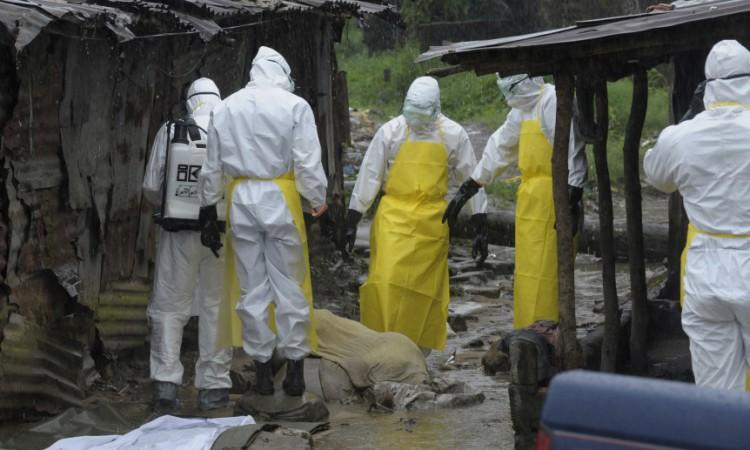
Local authorities have recovered bodies of eight people, including three journalists, who were attacked by villagers confused over spread of the deadly Ebola virus.
The health team along with the journalists was visiting a remote area of southeastern Guinea to educate the villagers on Ebola on Tuesday, when the incident took place.
"The eight bodies were found in the village latrine. Three of them had their throats slit," Damantang Albert Camara told Reuters by telephone in Conakry.
The Guinea police have arrested six people following the brutal attack on Tuesday in Wome, a village close to the town of Nzerekore, in Guinea's southeast, where Ebola was first identified in March.
Since then, the virus has killed about 2,630 people and infected at least 5,357 people, according to World Health Organization (WHO), mostly in Guinea, neighboring Sierra Leone and Liberia. It has also spread to Senegal and Nigeria.
The Ebola health team that was attacked in Wome comprised of a local administrators, two medical officers, a preacher and three accompanying journalists.
The team was in the middle of a session, when a hostile crowd from the village started pelting stones.
A resident named Yves told the Guardian that the local villagers had welcomed the team, until some agitators stormed the meeting.
"The meeting started off well; the traditional chiefs welcomed the delegation with 10 kola nuts as a traditional greeting," Yves said. "It was afterwards that some youths came out and started stoning them. They dragged some of them away, and damaged their vehicles."
Misinformation has often complicated the efforts to contain the disease. Even in the bigger cities of Guinea, local residents are suspicious of health workers.
Earlier in August, riots had broken out in Nzerekore, which is Guinea's second biggest city, when health workers reportedly "tried to spray the local market," with disinfectant to halt the spread of Ebola, BBC reported.
The residents started rioting thinking that the workers were actually spreading the virus themselves.








